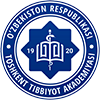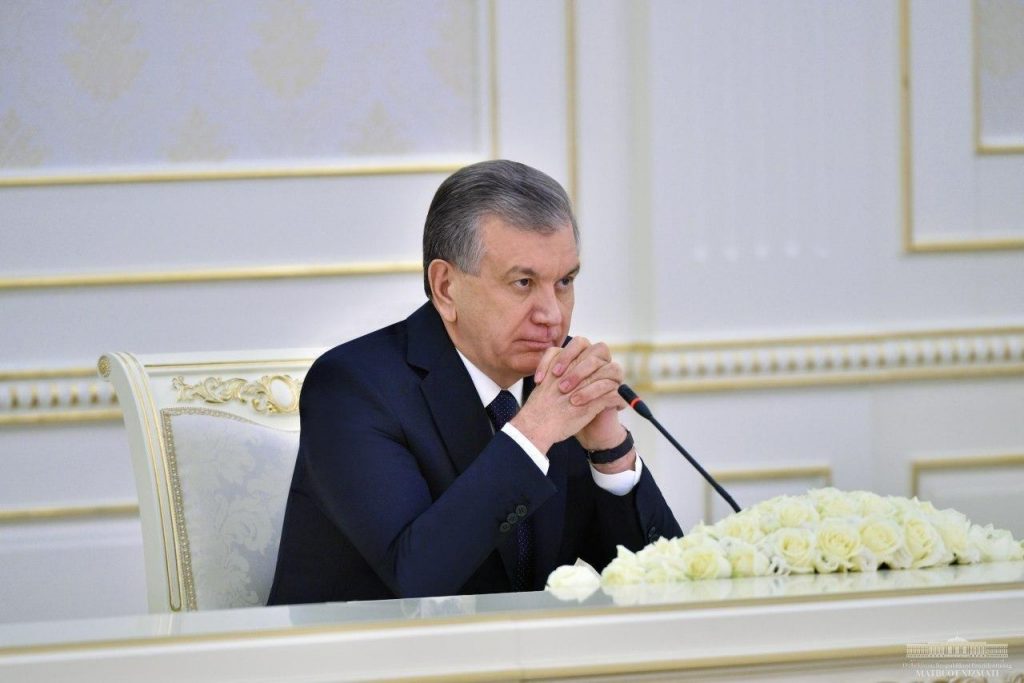On February 27, President of the Republic of Uzbekistan Shavkat Mirziyoyev chaired a videoconference meeting on measures aimed at reducing poverty through the development of entrepreneurship.
Like in any other country, Uzbekistan has a low-income population.
To improve the wellbeing of our people, such programs as “Every Family Entrepreneur”, “Youth is Our Future”, “Obod Qishloq”, “Obod Mahalla”, that on the development of backyard household economy have been adopted and are well into implementation. Over the past two years, within the framework of the family business development program, soft loans for almost 10 trillion soums were allocated from budgetary funds. This has helped ensure employment, sources of income for families.
For many years, poverty in our country had been a taboo word. In his Address to the Oliy Majlis on January 24 this year, President Shavkat Mirziyoyev openly spoke on this subject and for the first time identified the priority task of poverty reduction.
At a videoconference meeting today, issues of systemic organization of work in this direction were discussed.
“According to preliminary estimates, 12-15 percent or 4-5 million of the population of our country is in a state of poverty. This means that their daily income does not exceed 10-13 thousand soums. Or, for example, a family can have a car and livestock, but if one person gets sick, then at least 70 percent of the family’s income goes to treatment. Can such a family be called prosperous? Every day, as President, I am concerned about the question: do our people have enough money for such necessities of life as food, treatment, education and children’s clothes?” Shavkat Mirziyoyev shared his thoughts.
In order to effectively employ measures to support socially vulnerable and low-income families, to widely engage the population in entrepreneurship, Ministry for the Mahalla and Family Support was established by a presidential decree on 18 February 2020. A vertical system has been set up in this area with the introduction of posts responsible for the development of entrepreneurship and poverty reduction at the level of the mahalla, district (town), region and the nation.
Meanwhile, a separate secretariat and the post of deputy prime minister for financial and economic issues and poverty reduction have recently been introduced in the government structure.
“Reducing poverty does not mean just raising salaries or social benefits, mass allocation of loans. First of all, it is essential to educate the population in professions, elevate financial literacy, encourage people to do business, improve infrastructure, the quality of education and medical treatment, and introduce a system of targeted distribution of benefits,” the head of state insisted.
To this end, medium- and long-term poverty reduction strategies are being elaborated in conjunction with the United Nations, the World Bank and other reputable international organizations.
The meeting participants noted the urgent need to analyze the real conditions and situation in the context of each mahalla, district, town and region. The first area of work is the collection of data on the real situation of poverty, that is, the number of low-income families, while the second is the compilation of maps reflecting the potential, natural resources, and infrastructural capabilities of districts and cities.
“We need to deliver all conditions for people to work, grow rich, and live with dignity,” the President stressed.
Shavkat Mirziyoyev noted that next to densely populated areas where entrepreneurship is well developed, small industrial zones will be organized on the basis of empty and non-agricultural land. 100 billion soums will be assigned from the budget for the creation of required infrastructure. Land in the zones will be sold to entrepreneurs at a market value with the right to own. If this experience is justified, an additional 150 billion soums will be allocated in the second half of the year.
The Ministry of Economy and Industry, together with hokims, was entrusted to identify empty land for new small industrial zones and provide them with infrastructure.
Instructions were given the poor families on providing land taken out of circulation, on constructing artesian wells and boreholes on the ground.
The most critical aspect is poverty reduction through training the population in entrepreneurship and shaping professional skills.
There are currently around 1.4 million officially unemployed women and youth in the country. Among women, the unemployment rate is 13 percent, and among youth it is 15 percent. These indicators are high in Ferghana, Samarkand, Andijan, Kashkadarya and Tashkent regions.
In the meantime, there is a shortage of personnel: the construction sector lacks 104 thousand specialists, the public utilities sector needs 71 thousand, the services sector – 68 thousand, the textile industry requires 46 thousand specialists.
As the President noted, in order to meet the demand for qualified personnel, to boost employment, it is crucial to organize entrepreneurship courses in each region for the unemployed.
Upon completion of training, a competition will be announced by the Small Business Development Agency, a grant of 20 million soums will be assigned to the best project. Hokims will also provide fellowships to promising entrepreneurial projects at the expense of the local budget.
For single women and those with many kids, other unemployed persons who wish to find a profession, vocational training courses will be set up on such essential crafts in everyday life as sewing, culinary, and hairdressing. For this, premises will be allocated in mahalla assembly buildings or other buildings, and they will be provided with the necessary equipment.
The Ministry for the Mahalla and Family Support has been instructed to develop a vocational training program in the mahalla guzars and shape lists of applicants.
The work of organizing vocational training centers has been criticized. Thus, in 11 districts of Karakalpakstan, 9 districts of Bukhara and Tashkent regions, 7 districts of Surkhandarya and 5 districts of Jizzakh region there is not one such institution.
President Shavkat Mirziyoyev stressed the importance of actively engaging non-governmental organizations into the creation of vocational training centers, of holding a competition for the best curriculum among NGOs and allocating grants from the Employment Promotion Fund to its winners.
The Ministry of Employment and Labor Relations has been tasked with organizing Ishga Marhamat job centers and vocational training venues in each region, teaching the unemployed not only knowledge and professional skills, but also, if necessary, foreign languages.
It was determined that 70 percent of the funds for family entrepreneurship programs will be directed to small and medium-sized business projects that provide jobs for the poor. At the same time, enterprises hiring people with low incomes will be given preferences for bank loans.
The field of information technology has long become a separate line of business. In this regard, the need for creating interactive mobile applications and “business navigators” for the self-employed was indicated.
The President urged the Chamber of Commerce and Industry, the Agency for the Development of Small Business and Entrepreneurship to devise, together with commercial banks, business projects understandable to the general public. These schemes should be ready-made solutions in which expenses and revenues have already been calculated, the required production capacities, production volumes and other issues have been envisioned.
The head of our state pointed to the necessity of widespread promotion of business projects in the course of dialogue on the ground, through the media and social networks.
Proposals were made to increase the number of shopping and entertainment centers and mobile points of sale, and to remove redundant restrictions on such activities.
Shavkat Mirziyoyev insisted that the Agency for the Development of Small Business and Entrepreneurship, the Business Ombudsman, the Chamber of Commerce and the Prime Minister’s Reception Office act as a “bridge” between the state and business, and comprehensively support entrepreneurial initiatives.
Starting from March 1 this year, a rating system for the activities of government bodies of the economic complex and the Entrepreneurship Development Index in the regions are being introduced. Through open and covert polls among the population, the attitude of people towards organizations of the economic complex will be studied. In accordance with the results of these surveys, the activities of the leaders of the economic complex in the region will be assessed as “exemplary”, “good”, “satisfactory” and “unsatisfactory”. Those who receive a positive rating will be encouraged, while negative feedback receivers will be punished. The outcomes of the assessment will be discussed twice a year at sessions of Oliy Majlis houses, regional councils of people’s deputies and in the government.
Responsible executives presented information on the issues discussed at the videoconference meeting, and appropriate measures were identified.




